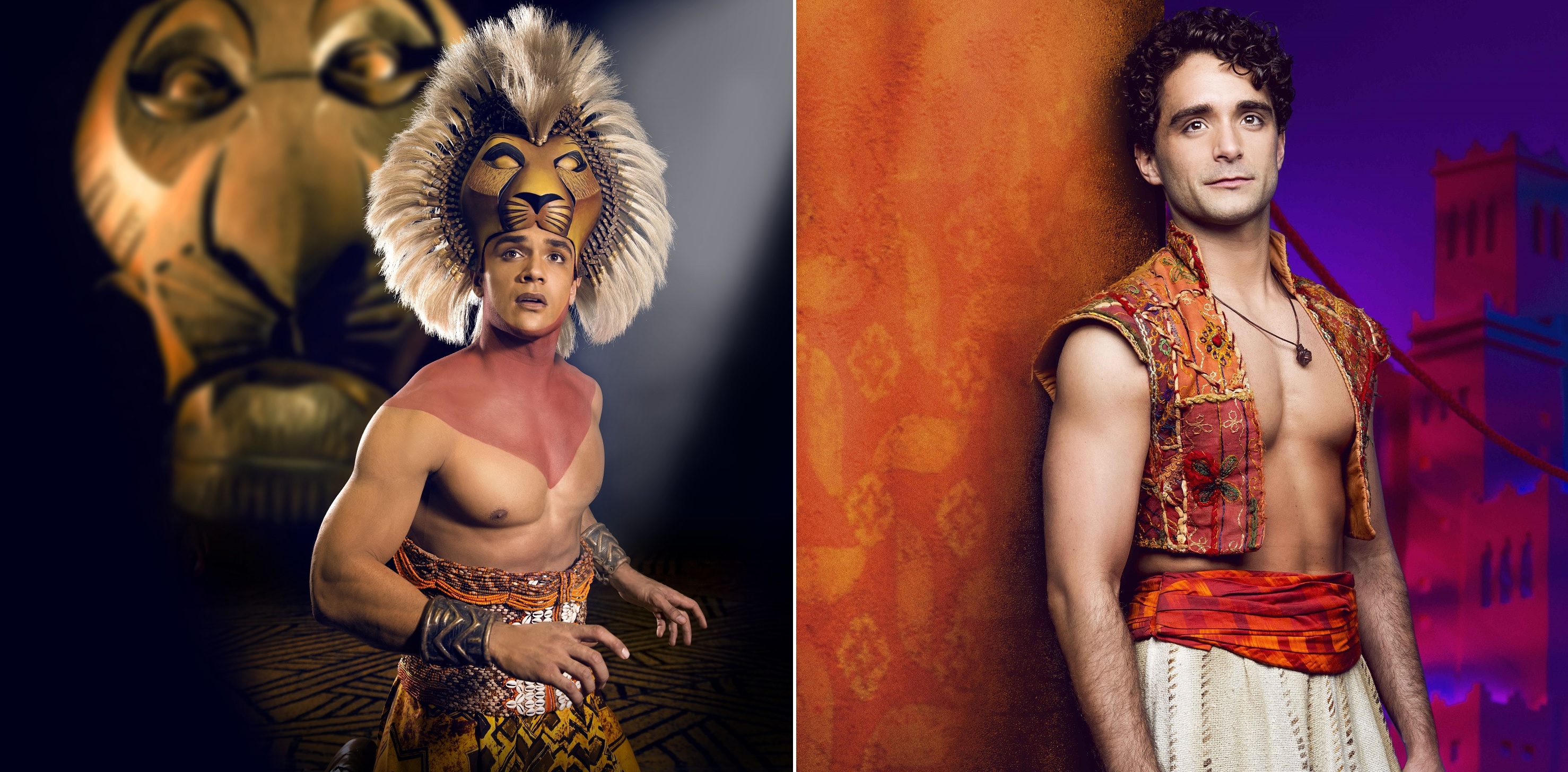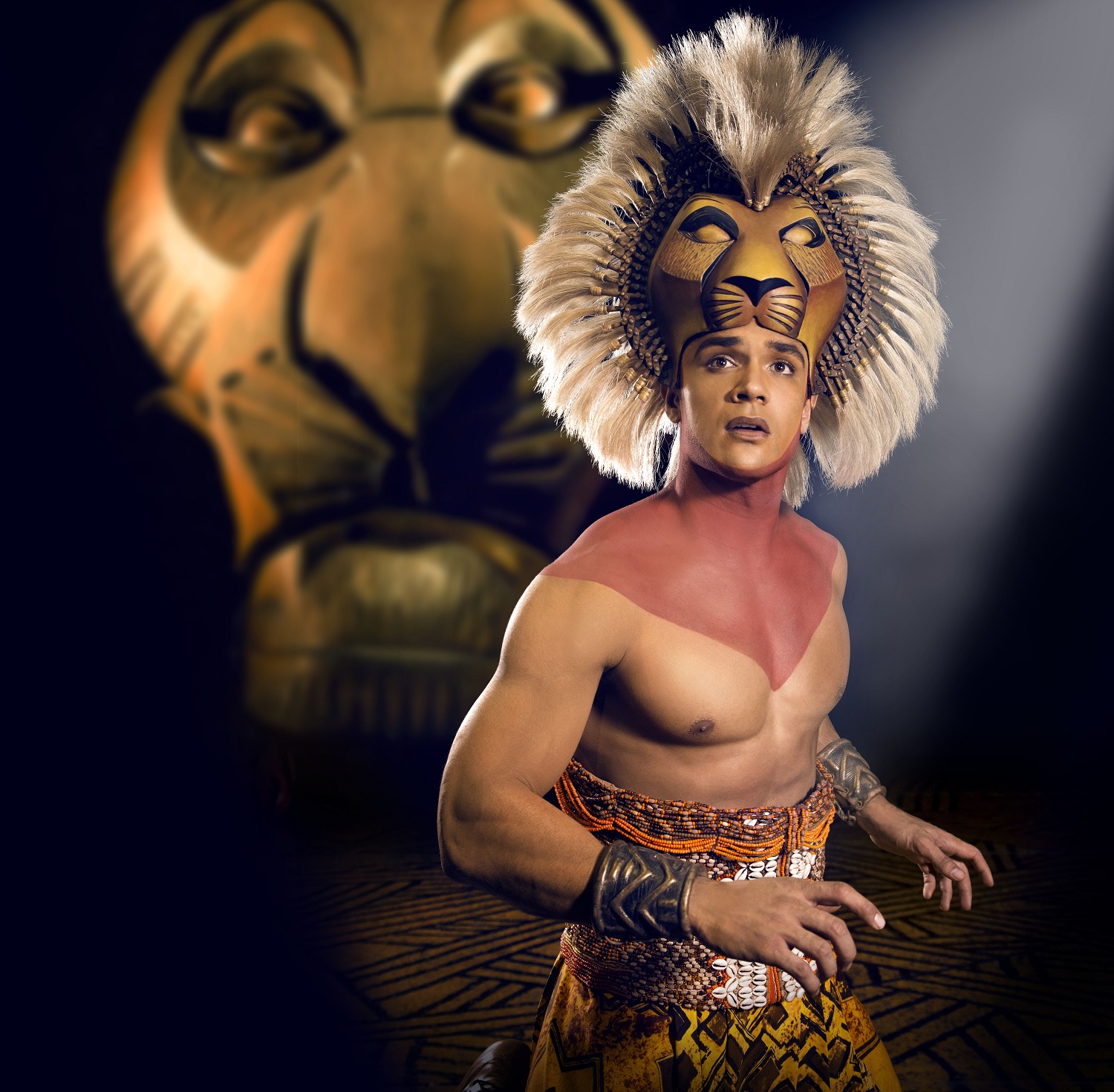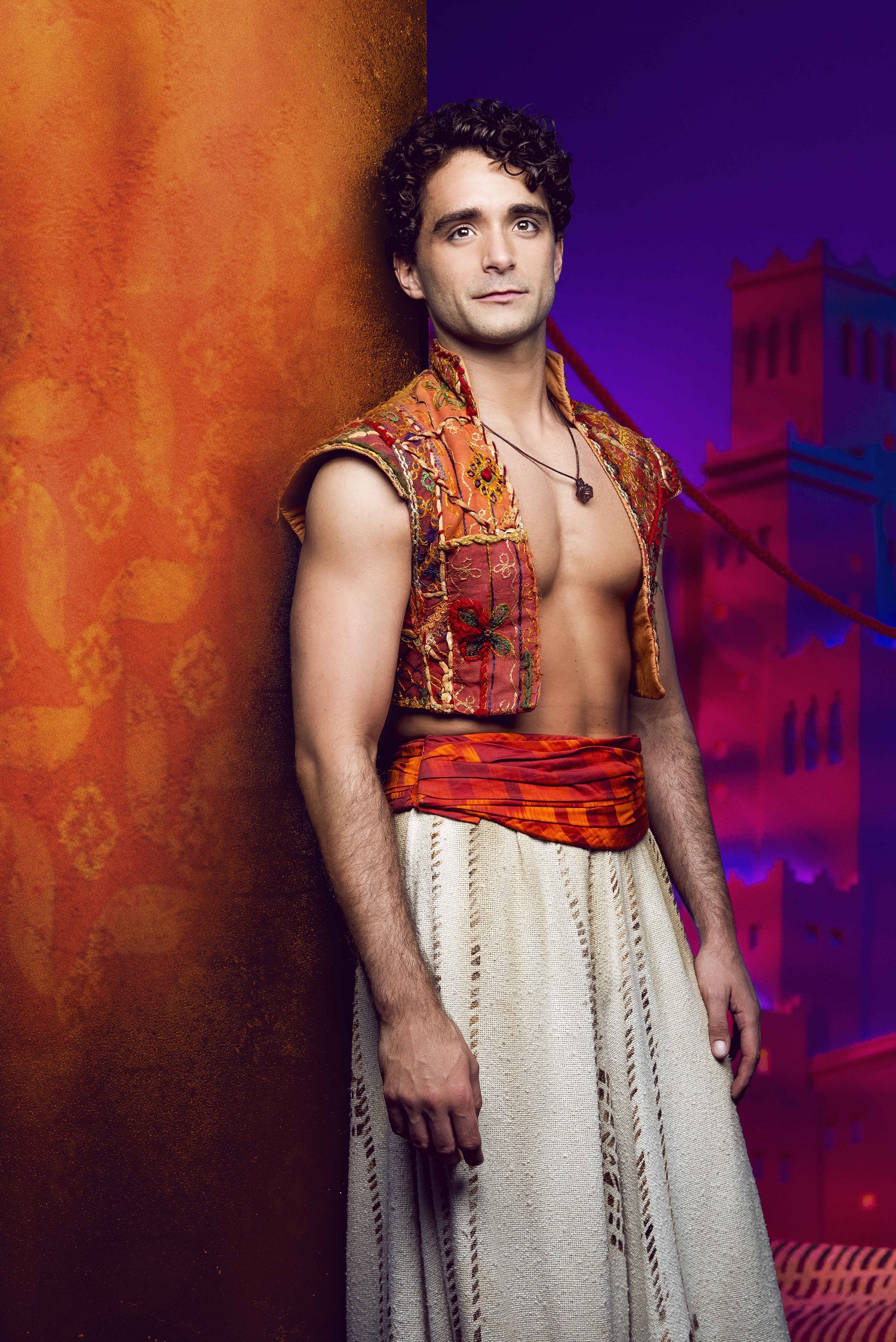Interview | The Lion King and Aladdin West End stars on openness of musical theatre
Matthew Croke and Nick Afoa speak exclusively to Attitude about their first time performing at Pride
By Steve Brown

Stars of the West End smash hits Disney’s Aladdin and The Lion King sat down with Attitude to discuss how starring in theatre has helped them become more accepting of all genders and sexualities.
Nick Afoa made his his stage debut as Simba in the Australian production of The Lion King back in 2013 and played Simba in the Sydney production of the landmark musical between 2013 and 2016 performing more than 860 times over that period. The opportunity to play the role in the West End production brought Afoa to London for the first time in 2015.
And Matthew Croke made his West End debut as the titular character in the hit Disney musical Aladdin and with Pride in London just around the corner, both performers are set to take the stage to perform in front of thousands of the LGBT+ community out celebrating what Pride means to them.
In a recent interview with Attitude, the two actors – who both identify as heterosexual – spoke about stereotypical assumptions about starring in musical theatre, their LGBT following and whether it’s time for a promient LGBT Disney character.
You are both performing this Saturday during Pride, are you looking forward to it?
Matthew: I am so excited. I am singing ‘Proud of Your Boy’ which is a song from Aladdin and to be honest every year that Pride is on, I am doing a matinee, so I am really, really happy to see what goes on and to see everyone having a good time really excited to be a part of that. We are opening right? It’s going to be exciting.
Nick: I can’t wait. Obviously, this will be my first time performing in Pride, it will be great to get out there and immersive myself in the culture of Pride and enjoy that day with everyone else out there and really, really looking forward to it. I think that’s why we agree to do these things. We love to be out to represent ourselves and Disney but also to get out there and I’m all about community and we are communal human beings, you know, we love doing these things.
What does Pride mean to you?
N: for me I really believe that everyone should be able to express themselves and over here I love having a platform where I can express myself and I really, really believe in it and passionate about it and so to be a part of Pride this weekend and to see a sea of people out there doing the same thing, celebrating their own pride, their own identity. It means a lot to me and I can’t wait.
M: Yeah, more or less the same for me. I have so many friends in the industry where I am working and in Sheffield where I am from and family members that are all different and in one way we are different, but we are all the same and I love that London is a massive part of that, that people feel, I don’t want to say accepting of anyone, because we are all one and London is a massive part of that that spreads a message around the country and the world.
You are both very attractive men, you must have a large LGBT+ following.
N: Yes, definitely I know I have a big LGBT following which has grown since being in Disney, but I don’t actually notice the labels of them, but I have a gay and straight following and I love it.
M: Yeah I love it too. Like you said being part of Disney is one thing and being so proud of being part of that and expanding that out to people whether they are in the industry or not and I just kind of feel like again in one it brings everyone together in the theatre whatever you are. Everyone is so excited and it’s amazing to be part of that whether it’s part of the cast or the audience.

You are both straight but there is a stereotypical assumption with the gay community loving musical theatre, did you have any reservations about getting into this career?
N: I think the first thing I noticed when I started in theatre was how open everything was. Even though there were so many different beliefs and different genders and sexual orientations, it wasn’t really a thing, all these different backgrounds just came together towards this common goal. Every now and then it will surface like, ‘How long is it going to take for you to come out, man’. And we just keep coming back to it, but that’s what I love about theatre is the differences.
M: Being altogether you meet so many different people in theatre, we all just have a good time and as long as everyone accepts you for who you are then it’s just a great career to be in and for me, I started performing when I was about four years old and I went to dancing class because my sister went to dancing class and I fell in love with it straight away so for me, I was used to being in a dancing class with the majority of girls and if another guy walked through the doors, I would gravitate towards him and we’d get on regardless of what he was outside the dancing class walls so I was very used to accepting people whoever and whatever they are and at school, being from Sheffield, I didn’t have the opportunity to kind of at school experience lots of different performing arts or drama or dancing at school, so I always felt accepted outside of school regardless of my sexuality.
“I just went on stage and loved every second of it and that’s all I cared about. There were times when my mum would say, ‘Matt if school is tough because some of the boys, you don’t have to dance if you don’t want to’. And I said, ‘No, I’d rather drop out of school’ like it was such a happy place to be and when I was growing up and started going to college with older people I would be meeting new people but there was very a massive thing for me to say like, ‘Oh he’s straight, he’s gay or she’s a lesbian’. I just love meeting new people regardless who they are. Again that’s what I love about Pride, that’s what it means. Making people realise we are one and we are all human beings and we should all love each other.
You mentioned your school not having much access to performing arts, do you think that has changed now?
M: Yeah 100 per cent. The school that I was just talking about for me, at the time there were some other schools that had a bit more dancing and all that kind of thing but now going back to that school, they are putting on massive shows the other week they put on We Will Rock You and there were loads of lads and obviously girls as well and there was a massive auditorium that they have transformed into a stage. There’s a massive focus on performing now in schools and I just hope it was there when I was there, but I am 30 years old now it was years ago.
N: I feel in general, there are a lot of movements with Pride and the attitude to make it OK to have these conversations and if I compare it to when I was young, now young people I can sense there is a lot more freedom for people to have these conversations so as a question it can be better but there is a lot of improvements.
There has been a lot of stigma recently with straight actors playing gay roles in film, TV and even theatre. Do you think this is something that needs to be addressed?
N: As an actor, if you were to ask me to play a gay role, I take my acting seriously and why should I shove off that opportunity to immerse myself in that kind of character you know, I would play a gay role, I would, because I consider myself an actor but in saying that I do agree that there could be a greater representation as well as other minorities as well.
M: Yeah, I totally agree. The last year, before I was offered Aladdin, there was an offer for me to play a role in the musical Yank in Manchester where it originated and straight away, as an actor, I was just desperate for any role. Any role would be as amazing as the one before as it was about expanding my career whatever that role was. It was a role I could get my teeth in to and act and become someone else.
“It wasn’t about what that character was it was about my career, so I was open minded with that and it is about my career as well. Whoever the director wants, it should be regardless of them. There are two separate sides of it. Who we are at home and the best thing about being an actor is we can be anything we want to be. For me, it’s such an exciting thing to be able to be different people and really dig deep into what different people are like and then I go home and I’m just Matthew.

You are both in Disney musicals but there is still yet to be a prominent LGBT character, is it time for this to happen?
M: There’s a film that has recently come out. I don’t know whether it’s out yet, that could be a spoiler!
N: It’s definitely time. It’s important for young people to see character’s just like them. As I said before, it has come a long way with ethnic representation in Disney and in shows. You want young people – gay, straight, transgender – looking up to these roles so I think it’s the right time.
M: I remember for me a similar thing if that was to happen now with a young guy or girl in a film that everybody loved that comes out that would be amazing. I remember when Billy Elliot came out, for me, just seeing something so popular in its nature and for me, growing up going to dancing classes, I would say to the other boys, ‘I can’t play football tonight because I have dance rehearsals’. Even that really helped.
Did you have idols/role models growing up?
N: I was a rugby player before getting into theatre and already you can see the contrasting worlds. I had role models in both worlds, but I still think there could be more representation of other minorities which opens it up for other young children to aspire for.
To book tickets for The Lion King click here.
To book tickets for Aladdin click here.
